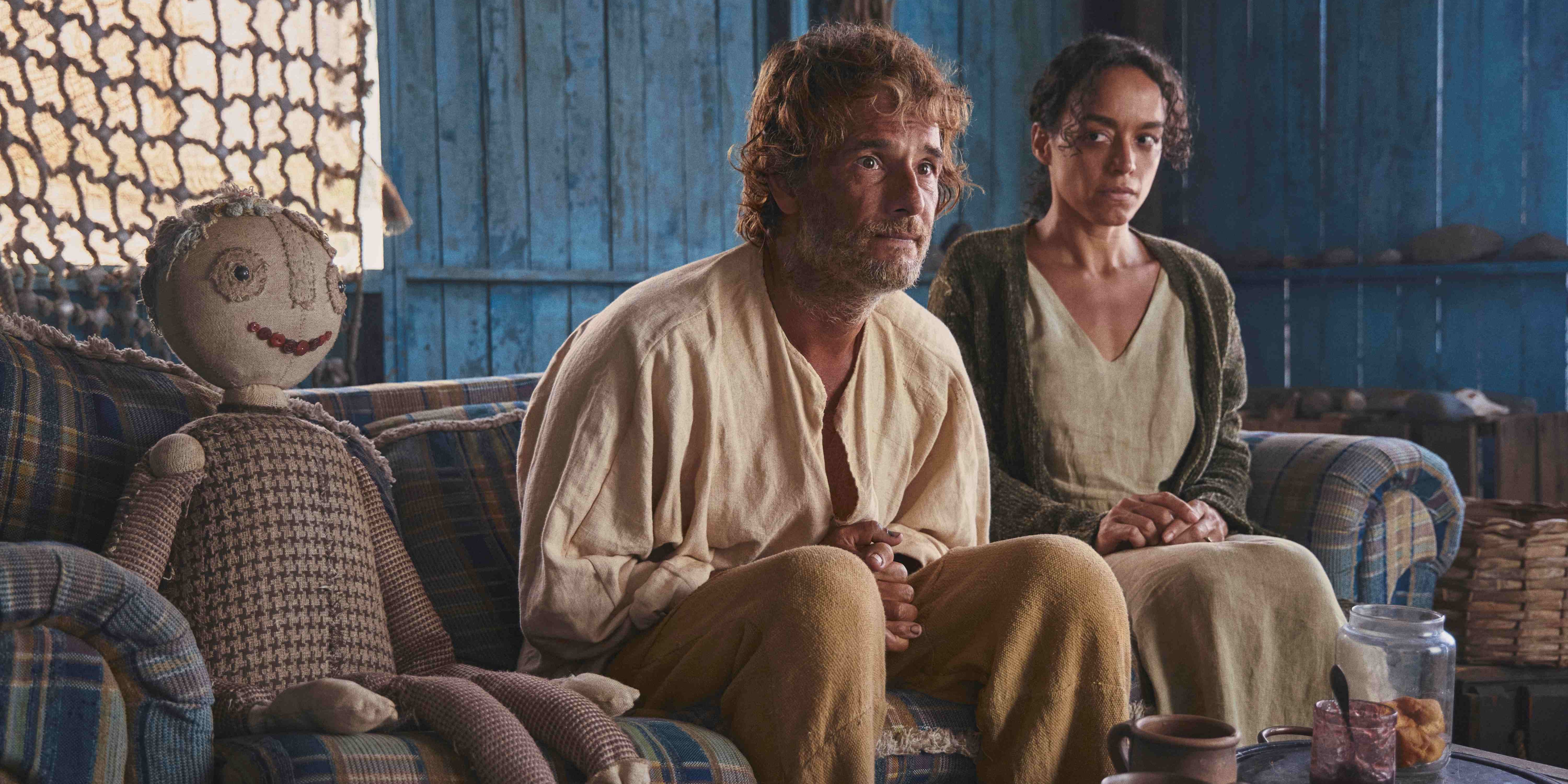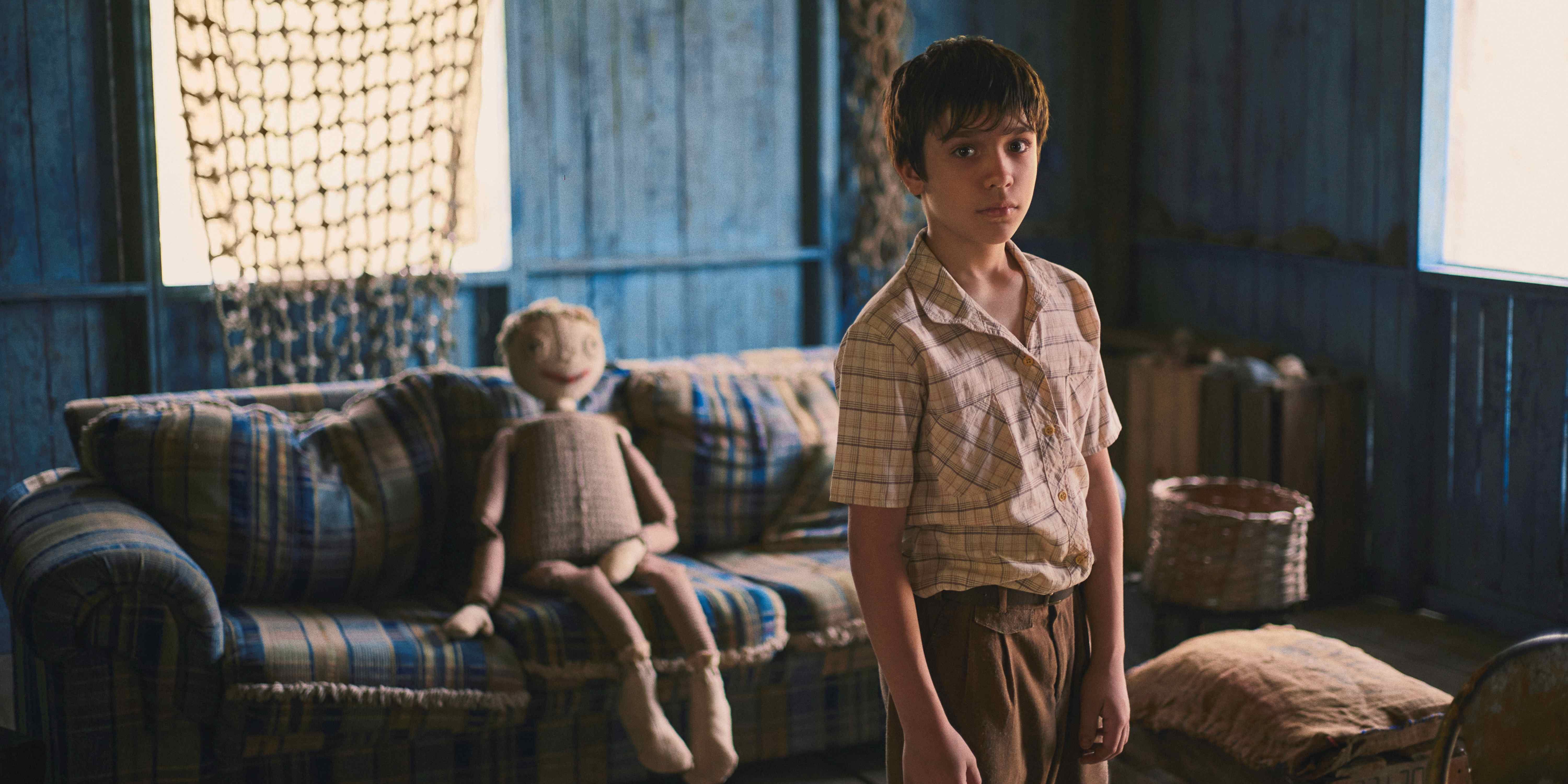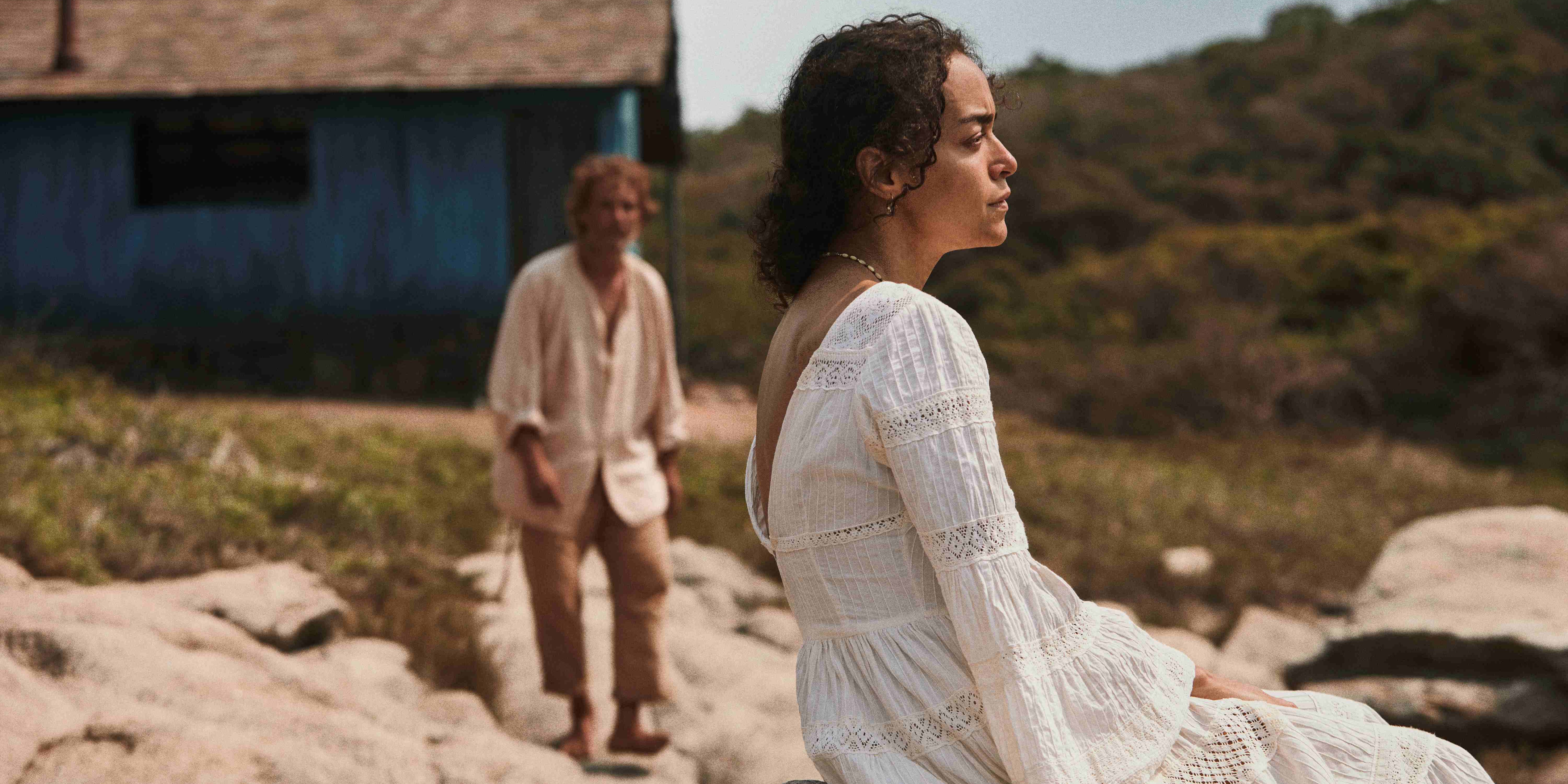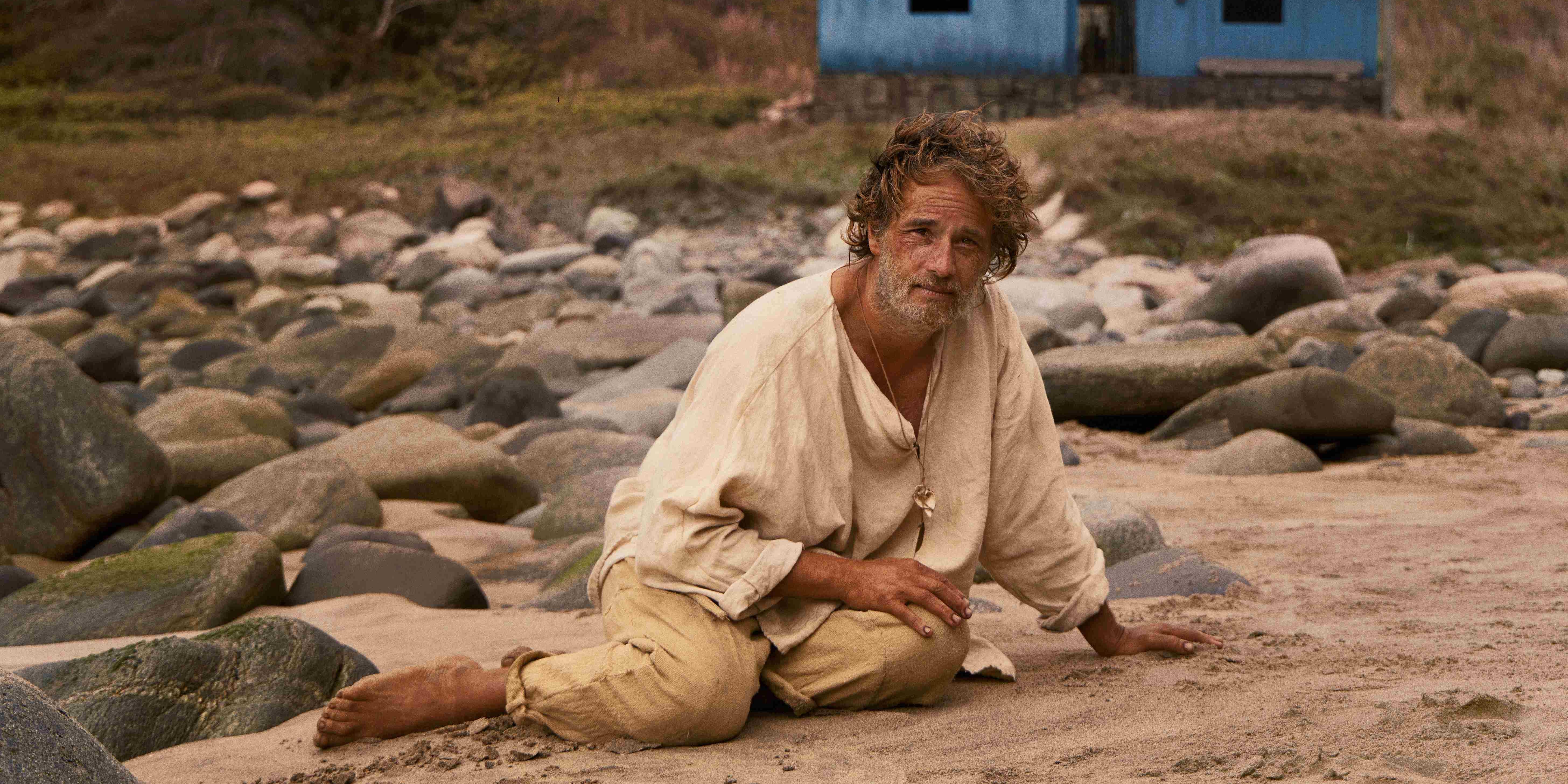‘The Son of a Thousand Men’ or ‘O Filho de Mil Homens’ is the story of a lonely fisherman named Crisóstomo, who lives in an idyllic and isolated village by the sea. One of the major problems in his life is that he is not a father. He desperately seeks to be a parent and befriends Camilo, an orphan, hoping to forge a father-son relationship. The two connect on an emotional level and explore the mysteries of the soul. In this process, Crisóstomo also crosses paths with a woman named Isaura, who faces marital difficulties.
Despite not being related to each other, the three individuals have to find the idea of family. As they face the mysteries of the waves and fight against their own feelings, they must comprehend the meaning of life. Directed by Daniel Rezende, Netflix’s Brazilian drama film is a poignant exploration of loneliness, love, connection, and existentialism, complemented by stunning visuals.
The Son of a Thousand Men Captures the Spirit of Valter Hugo Mãe’s Novel
‘The Son of a Thousand Men,’ written by the aforementioned director and co-writer Duda Casoni, is based on Valter Hugo Mãe’s novel ‘O Filho de Mil Homens,’ which is also the Portuguese title of the Brazilian film. Both the novel and the film are fictional creations that delve deeply into human relationships, emotions, and experiences. In the book, the story is set in a quaint Portuguese village by the sea, in the mid-twentieth century. It revolves around a fisherman named Crisóstomo, his partner Isaura, his adopted son Camilo, and Antonino, who is Isaura’s husband and Crisóstomo’s best friend. These characters are unified by a profound sense of rejection, which ultimately restricts each individual’s perspective on social life. The novel’s exploration of the human condition is reflected by the film, which also has a similar premise.

The desperation of the main character to become a parent and the events surrounding it are at the heart of both the film and the novel. In the book, the fisherman crosses paths with the orphaned boy Camilo, who also urges his adoptive father to find a new wife. The emotional complexities experienced by the characters poignantly reflect reality. In an interview with Metrópoles, the author Valter Hugo Mãe opined that he didn’t want to intervene in the creative process of the film and didn’t intend to let his perspectives alter the vision of the director Daniel Rezende. The author also appreciated the Brazilian feel of the film, since his novel is set in Portugal. Despite the premise being similar, the movie makes it a more authentic Brazilian experience while maintaining the magic of the novel.
In an interview with Deadline, the director Daniel Rezende opined, “I heard from a lot of people that it is a book that’s impossible to adapt because of the way Valter Hugo Mãe dealt with the words in Portuguese; it’s so poetic, it’s so sensorial, it’s so magical. I didn’t think about how hard it would be to adapt. I was completely blown away by the book and moved by its humanity. He described a lot of feelings that I felt completely connected to.” The film utilizes creative liberties to provide the viewers with an enthralling experience, but manages to keep the emotions and themes grounded and layered. Ultimately, ‘The Son of a Thousand Men,’ while being based on a novel, is a fictional story that reflects complex human realities, while also maintaining originality in its portrayal.
The Narrative is a Poignant Take on The Intricacies of Human Emotions
‘The Son of a Thousand Men’ is a deeply human story that challenges morality, social structures, and the meaning of life. It is also a commentary on the value of family and the connection human beings have with nature. The surrealist feel of the movie stems from the isolation and the desperation of the characters, who look to escape the confines of society and morality. The idea of masculinity finds a unique representation in the film. Daniel Rezende intended to portray masculinity in a way that is seldom seen in art.

The filmmaker said, “Something that was very important to me in this movie was to create this reference of masculinity that I don’t see in art. It is a masculinity that is based on listening, empathy and connection. Crisóstomo grew up apart from society, so he doesn’t know the codes, he doesn’t have the beliefs of society. He’s very connected to nature, but he doesn’t know how to connect to people. He’s not afraid of showing his feelings and he’s not judging.” Masculinity has been a topic of discussion in the world of movies and shows in recent years. In reality, there have been attempts to decipher the meaning of masculinity, especially in a time when ‘toxic masculinity’ has also gained popularity. The character of Crisóstomo represents a different idea of male identity.
The paternal instincts he feels play a pivotal role in the story, and also humanize him. His desperation to become a father and the need to have a family also reflect the larger phenomenon of male loneliness, especially in the modern world. Rodrigo Santoro, who plays Crisóstomo in the film, said, “Crisóstomo is very contemporary and perfect for the world we live in, and for all the discussions that we are having about masculinity and about connection in a world where we are very much absorbed by how much we have to perform, and how much we have to win.”

The purpose of the narrative is not just to entertain, but also to initiate conversations about sensitive issues. It also sheds light on issues like anguish, homophobia, ableism, and misogyny. The characters are grounded in reality, despite experiencing surreal connections with their surroundings. In conclusion, ‘The Son of a Thousand Men’ is a fictional, poignant intertwining of family, social morality, and the meaning of life, narrated through the experiences of grounded characters.
Read More: Is Netflix’s Mango Based on a True Story?


